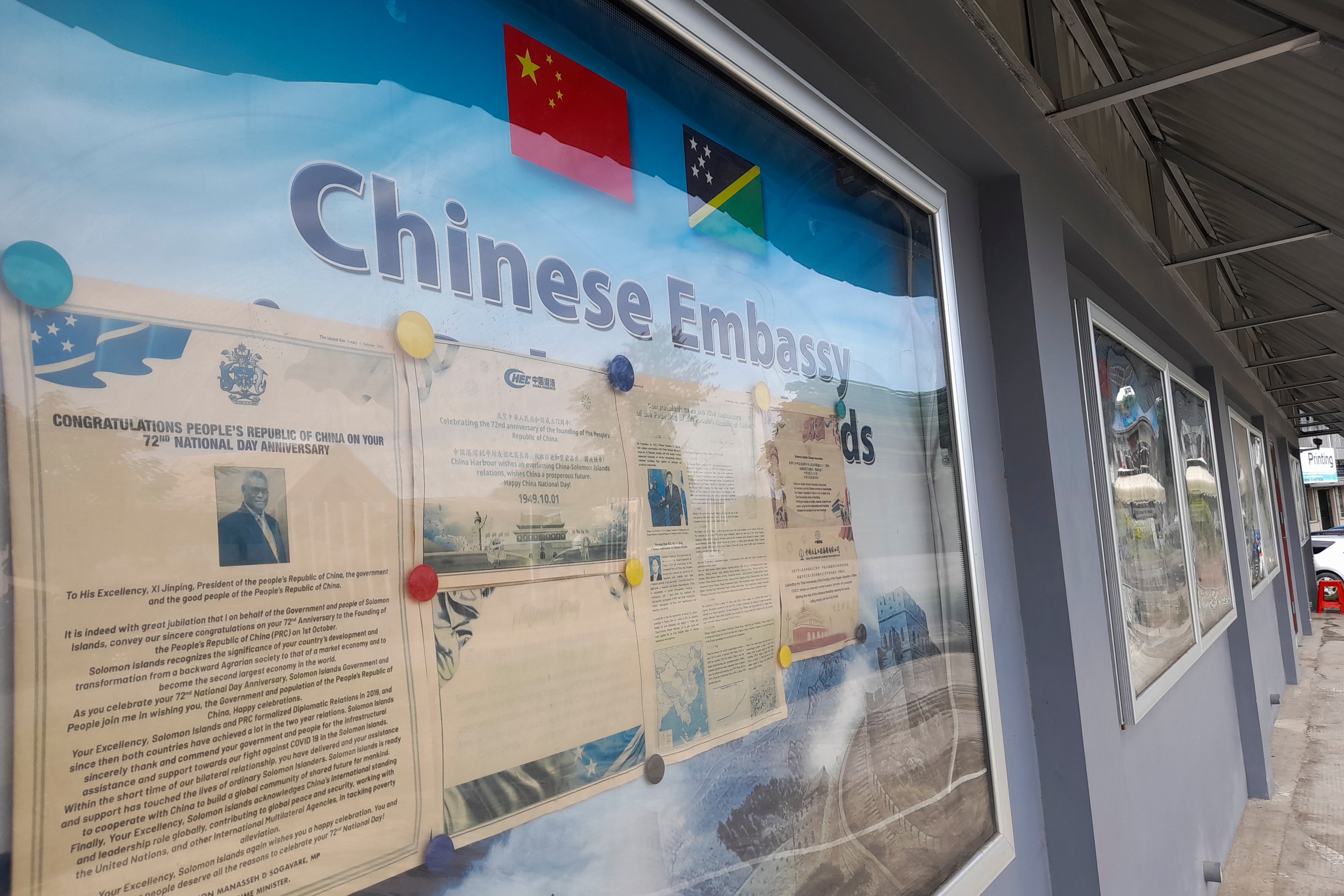Chinese company eyes Solomon Islands deep-water port
A Chinese state-owned company is negotiating to buy a forestry plantation with a deep-water port and World War II airstrip in Solomon Islands amid concerns that China wants to establish a naval foothold in the South Pacific country

Your support helps us to tell the story
From reproductive rights to climate change to Big Tech, The Independent is on the ground when the story is developing. Whether it's investigating the financials of Elon Musk's pro-Trump PAC or producing our latest documentary, 'The A Word', which shines a light on the American women fighting for reproductive rights, we know how important it is to parse out the facts from the messaging.
At such a critical moment in US history, we need reporters on the ground. Your donation allows us to keep sending journalists to speak to both sides of the story.
The Independent is trusted by Americans across the entire political spectrum. And unlike many other quality news outlets, we choose not to lock Americans out of our reporting and analysis with paywalls. We believe quality journalism should be available to everyone, paid for by those who can afford it.
Your support makes all the difference.A Chinese state-owned company is negotiating to buy a forestry planation with a deep-water port and World War II airstrip in Solomon Islands amid persistent concerns that China wants to establish a naval foothold in the South Pacific country.
A delegation from China Forestry Group Corp. visited the plantation that covers most of Kolombangar Island in 2019, asking questions about the length of the wharf and depth of the water while showing little interest in the trees, Australian Broadcasting Corp. reported on Monday.
The board of Kolombangara Forest Products Ltd., the takeover target known as KFPL which is owned by Taiwanese and Australian shareholders, wrote to the newly elected Australian government in May warning of the “risks/strategic threats” posed to Australia by such a sale, the ABC reported.
Australia’s Department of Foreign Affairs and Trade wrote back to the board last week saying it was “not intervening,” the ABC said.
Foreign Minister Penny Wong’s office told The Associated Press that Australia was continuing to engage with KFPL on the potential sale.
Australia’s High Commissioner in Honiara Lachlan Strahan “has been engaging regularly with the management of KFPL and will continue to do so,” Wong’s office said in a statement.
“We value our position as Solomon Islands’ first security and development partner of choice, and we are committed to working together to face our shared challenges,” the statement added.
KFPL Chairman Matthew English said in a statement he “cannot comment on any commercial matters in relation to KFPL.”
A KFPL official, who spoke on condition of anonymity because the official was not authorized to make public comment, said the board wanted the Australian government to make an offer or facilitate an offer from an Australian company.
U.S. and its allies’ concerns over China’s growing influence in the South Pacific intensified this year when China and the Solomons signed a bilateral security pact that has stoked fears of a Chinese military presence less than 2,000 kilometers (1,200 miles) off Australia’s northeast coast.
Australia already has a security treaty with the Solomons and Australian police have been maintaining peace in the capital Honiara since rioting late last year.
Solomons Prime Minister Manasseh Sogavare insists that China will never be allowed to establish a military base in his country.
His office did not respond to a request for comment on Monday.
Solomons lawmaker Silas Tausinga, whose electorate is near Kolombangar, said China had a strong ambition to house military assets in the Solomons.
“Absolutely, Australia should be worried about it,” Tausinga told ABC.
China’s influence has been rapidly growing in the Solomons since 2019, when Honiara switched it allegiance from Taiwan to Beijing.